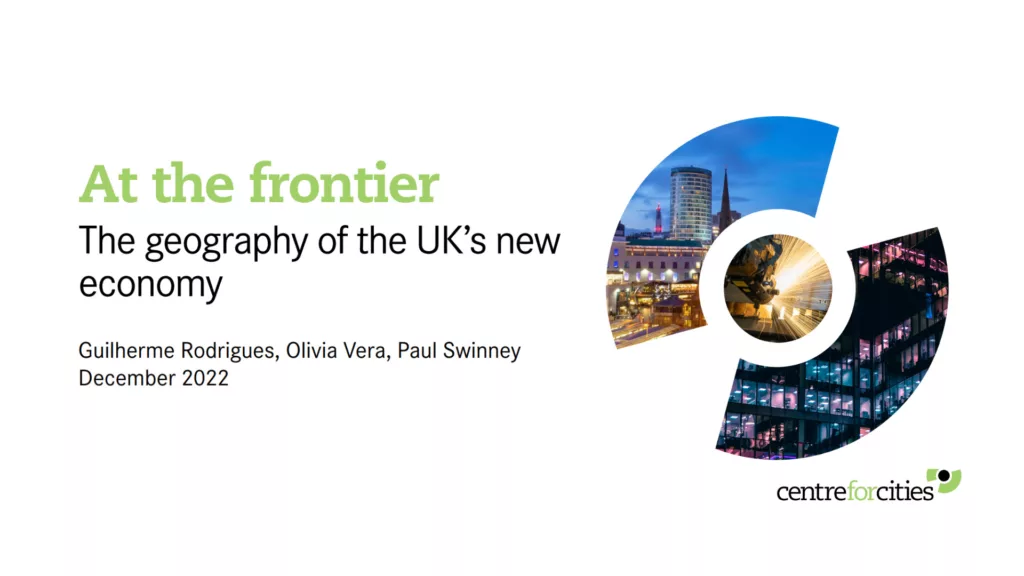
The geography of economic activity has always been a key point for policy making. From identifying clusters of activity to finding deprived areas, looking into the spatial distribution of companies and sectors sheds light over the role of the area in the wider economy and helps pin point new opportunities. However, it is often challenging to find data on the economy that embeds location-based insights.
This is why Centre for Cities approached us to collect data for their report “At the frontier: the geography of the UK’s new economy”. Our datasets have location information at the company level, allowing for a detailed analysis of the business population in an area. In this blog, we will discuss what we did for this project, why it is important and its potential to impact wider economic research.
Mapping the city centre economy
Our datasets contain postcode information for the registered and trading addresses of companies. We obtain the registered address information from companies from their official filings to Companies House. But often times, using the registered address of a company in geographic analyses will falsify the results and conclusions. While some companies may be registered in a particular area, sections of their activity may be located elsewhere. This is why we also capture trading addresses from the companies’ website using our website crawling technology. This characteristic of our datasets facilitates a detailed definition of the geography of economic sectors at different levels.
Centre for Cities capitalised on this element of our data to look into the economy in the city centre of key UK cities. One of the main aims of this exercise was to understand the role of city centre areas for UK’s economy overall. Thanks to our postcode information at the company level and the provision of a series of Lower Layer Super Output Areas (LSOAs) that defined city centre areas, we where able to identify those companies that have either a trading or registered address in the selected region.
Centre for Cities were specially interested in the performance of emergent economic sectors in the UK. Hence, we provided a dataset that aggregated all companies in all RTICs that had a registered and/or operating address in the geography of interest. This data is instrumental to understand the relationship between city centre locations and the UK’s newer economic sectors and build knowledge to inform future policy.
Impact and conclusions
The fact that we have postcode information at the company level makes it possible for the users of our data apply a wide range of geographic analysis. Hence, our datasets have the potential to greatly impact economic geography research. This means that the structure and characteristics of our data contain critical information that can be analysed through the lenses of any custom geography. If you have questions on how our data may help you understand the economic geography of a place or sector, get in touch!